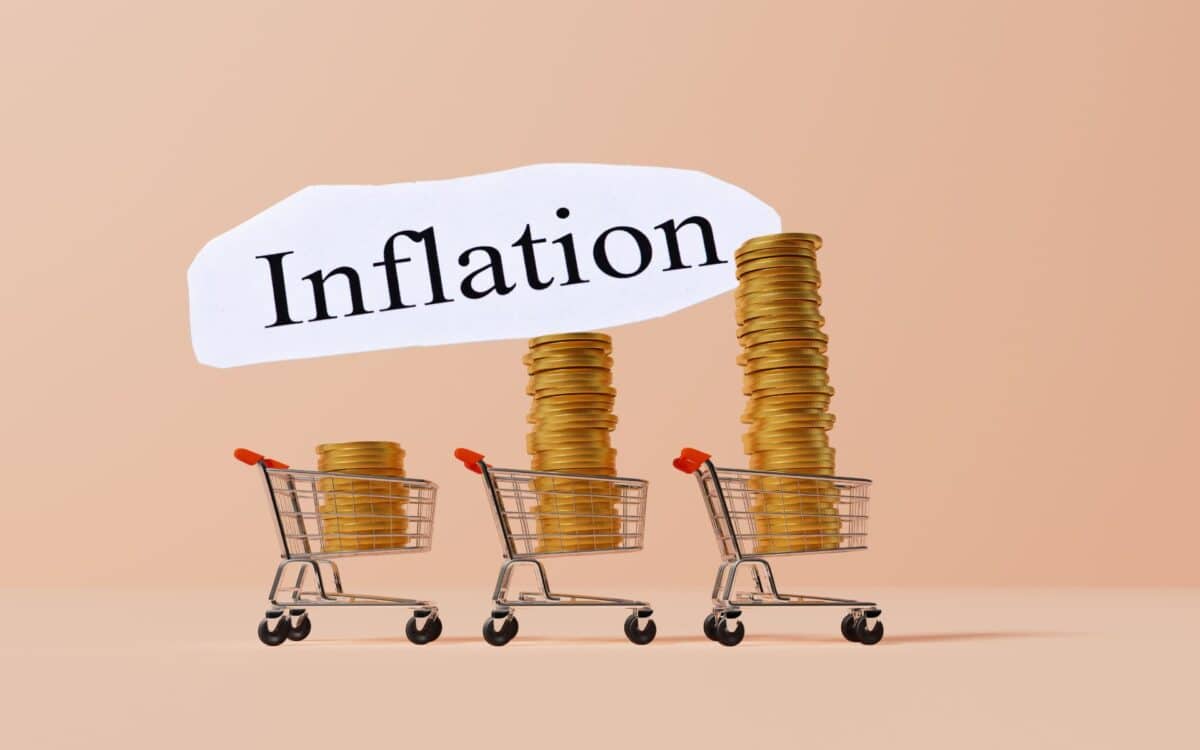Inflation in the United Kingdom rose more sharply than forecast in April, reaching 3.5%, according to figures published by the Office for National Statistics (ONS). This marks the highest annual rate since January 2024, breaking a trend of declining inflation over the early months of the year.
The jump reflects a broader uptick in household expenses that has unsettled markets and policymakers alike. According to The Guardian, the data underscores mounting pressure from a series of regulated price adjustments and labor cost reforms.
The increase was linked to higher bills for gas, electricity, water, and council tax, as well as employer national insurance contributions and changes to the national minimum wage.
Energy and Utility Bills Remain Primary Drivers
A spokesperson for the ONS noted:
Significant increases in household bills caused inflation to climb steeply. Gas and electricity bills rose this month compared with sharp falls at the same time last year due to changes to the Ofgem energy price cap.
The data shows that the effect of the Ofgem cap changes in 2023 created a low base of comparison, amplifying the relative rise seen this year.
The ONS also reported that water bills rose sharply, along with an increase in vehicle excise duty, all of which, they added,
Pushed the headline rate up to its highest level since the beginning of last year.
While core living costs soared, the overall index increase was partially offset by falling oil prices, which helped reduce petrol and diesel costs. Additionally, heavy discounting on children’s clothing and women’s footwear helped moderate the impact in the retail sector.
Labour Market Reforms Push Prices Upward
The inflationary environment was compounded by recent policy changes, including a rise in the national minimum/living wage and an increase in employers’ national insurance contributions. These factors placed cost pressures on businesses, which are expected to pass them on to consumers.
According to Monica George Michail, an economist at the National Institute of Economic and Social Research (NIESR),
Businesses are experiencing cost pressures amidst the rise in national minimum/living wage, employer’s national insurance contributions, and regulated price increases. Some of these costs will be passed down to consumers through higher prices.
She also warned that monetary policy adjustments may remain limited:
We therefore anticipate just one further interest rate cut this year by the Bank of England.
Businesses Warn of Cascading Effects
Industry groups expressed concern over the compounded cost environment. The British Chambers of Commerce (BCC) stated: “While April’s jump was expected, the scale, to 3.5%, is concerning.” The group described the current situation as “a perfect storm,” citing the combined pressure from tax hikes, wage increases, and global tariffs.
They further noted that
Our research shows 55% of businesses are expecting to put up prices in the coming months.
Market Reactions and Interest Rate Outlook
Before the release, City economists had forecast an inflation rate of 3.3% for April, while the Bank of England (BoE) expected 3.4%. Both were below the actual outcome of 3.5%.
Earlier this month, the BoE reduced its base interest rate by 0.25 percentage point, bringing it down to 4.25% during its meeting on 8 May. The decision revealed a divided monetary policy committee: two members favored maintaining the rate, two supported a more aggressive cut, and the remainder voted for the moderate reduction that was implemented.
In light of April’s inflation figures, financial markets have now pushed back expectations for further rate reductions. Cuts initially anticipated for June or August are now likely to be delayed until September, depending on future data.
The Bank projects inflation to average 3.5% throughout the summer and autumn, suggesting sustained pressures over the medium term, despite some forecasts of falling energy prices which may ease the trajectory later in the year.
Political Debate Reignites Around Cost of Living
The inflation release has reignited political tensions. Chancellor Rachel Reeves called the figures “disappointing” and stated:
“I know cost of living pressures are still weighing down on working people – She added:
We are long way from the double-digit inflation we saw under the previous administration, but I’m determined that we go further and faster to put more money in people’s pockets.
In response, Shadow Chancellor Mel Stride said:
This morning’s news that inflation is up – and now well above the 2% target – is worrying for families – He criticized the government’s handling of the economy, claiming:
Labour’s economic mismanagement is pushing up the cost of living for families – on top of the £3,500 hit to households from the chancellor’s damaging jobs tax.
Higher inflation could also mean interest rates stay higher for longer, hitting family finances hard … Families are paying the price for the Labour chancellor’s choices.









